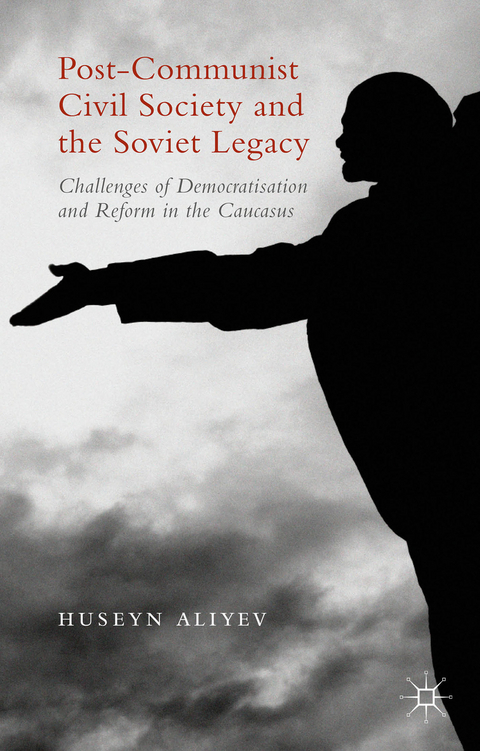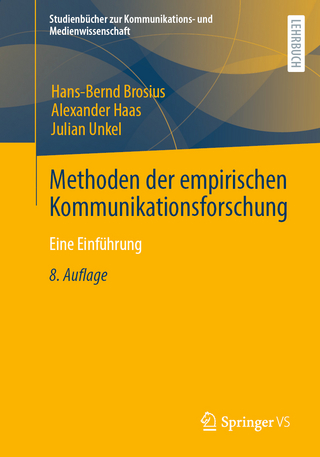
Post-Communist Civil Society and the Soviet Legacy
Palgrave Macmillan (Verlag)
978-1-137-48914-2 (ISBN)
Huseyn Aliyev holds a Ph.D in Politics from the University of Otago, New Zealand. He is the author of over 20 articles on post-communist comparative politics, civil society, armed conflicts in the North Caucasus and informal institutions.
List of Figures and Tables
Note on Transliteration
Preface
List of Abbreviations
Introduction
Outline of the argument
Relevance of research
Case study: Caucasus
Sources of data
Overview of contents
PART I: DEMOCRATISATION, CIVIL SOCIETY AND COMMUNIST LEGACIES
1. Democracy In The Caucasus And The Former Soviet Union
2. Structural Democratisation
3. '' ''Transition '' '' Theories
4. Civil Society, Social Capital And Networking
5. Why Is Civil Society Important?
6. What Is Civil Society?
7. Social Capital
8. Informal Networking
9. What Determines The Development Of Civil Society?
10. Political System
11. Armed Conflicts
12. Economic Well-Being
13. Antecedent Regime '' ''s Legacy
14. Post-Totalitarian Legacy
15. Soviet Legacy: Conceptual And Analytical Baseline
16. Conclusion
PART II: HISTORY OF CIVIL SOCIETY IN THE CAUCASUS
17. Pre-Communist Civil Sector
18. The Caucasus '' ''s Civil Sector Under Soviet Rule
19. Public Sphere Of Soviet Society
20. Soviet Private Sphere
21. Sovietisation
22. '' ''Neformaly '' ''
23. Perestroika And The Birth Of Nationalist Civil Society
24. Conclusion
PART III: POST-COMMUNIST CIVIL SOCIETY
25. The Post-Communist NGO Sector
26. Overview Of The NGO Sector
27. Weaknesses Of The NGO Sector
28. Membership And Participation
29. Distribution
30. Popular Trust Towards Ngos
31. Operational Structure
32. Ngos '' '' Patron-Client Relations
33. Post-Communist Informal Networks In The Caucasus
34. Types Of Informal Networks
35. Informal Networks As Providers Of Public Goods
36. Limits Of Informal Networking
37. Indigenous Social Capital
38. Conclusion
PART IV: SOVIET LEGACY AND CIVIL SOCIETY
39. Legacy Of The Soviet Public Sphere
40. Institutional Legacy
41. Individual Legacy
42. Continuity Of Civic Traditions
43. Informal Networks As Soviet Legacy
44.How And Why Do Informal Civic Traditions Continue?
45. Conclusion
PART V: ALTERNATIVE EXPLANATIONS
46. Political System
47. Impact Of Political System On Formal Civil Society
48. Political System And Informal Networks
49. Armed Conflicts
50. Economic Well-Being
51. Conclusion
Conclusion
Alternative Explanations
Contributions And Implications
Notes
Bibliography
Index
| Erscheint lt. Verlag | 12.8.2015 |
|---|---|
| Zusatzinfo | XIV, 222 p. |
| Verlagsort | Basingstoke |
| Sprache | englisch |
| Maße | 140 x 216 mm |
| Themenwelt | Naturwissenschaften |
| Sozialwissenschaften ► Kommunikation / Medien ► Kommunikationswissenschaft | |
| Sozialwissenschaften ► Politik / Verwaltung ► Politische Systeme | |
| Sozialwissenschaften ► Politik / Verwaltung ► Politische Theorie | |
| ISBN-10 | 1-137-48914-6 / 1137489146 |
| ISBN-13 | 978-1-137-48914-2 / 9781137489142 |
| Zustand | Neuware |
| Haben Sie eine Frage zum Produkt? |
aus dem Bereich


